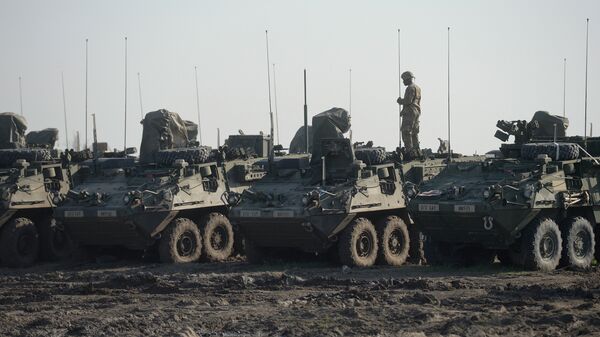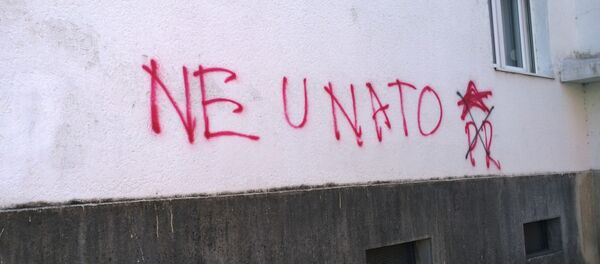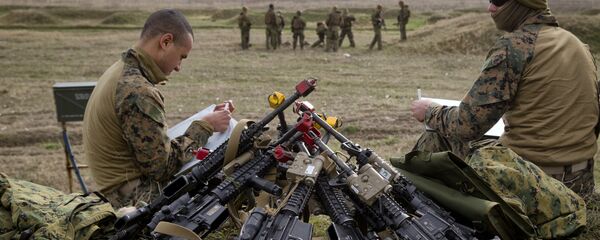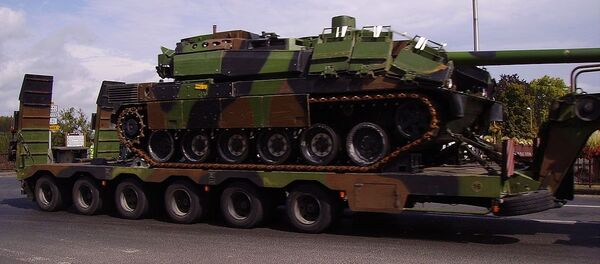Commenting on United States European Command Gen. Curtis M. Scaparrotti's March 23 testimony before the Senate Armed Services Committee, Sheynkman came to the conclusion that US generals are still stuck in a Cold War mindset.
Speaking to the committee, Scaparrotti stated that the US European Command is seeking additional forces to counterbalance Russia's growing military power.
"EUCOM is coordinating across the DOD [Department of Defense] to obtain the forces we need in every warfare domain. This may include additional maneuver forces, combat air squadrons, anti-submarine capabilities, a carrier strike group and maritime amphibious capabilities," the general said demanding more assets "to deter Russia from further aggression."
Today, the US military has about 62,000 troops in Europe, while during the Cold War Washington had deployed 300,000 troops in the region.
"As [Scaparrotti] admitted at a congressional hearing, it was due to [former Secretary of Defense Ashton Carter's] instructions that the United States Army has adopted a new operational defense plan for Europe for the first time in a quarter of a century. So they call the occupation of the Old World," Sheynkman said.
In other words, the US military has taken the European continent under control, Sheynkman remarked, adding that now the Pentagon and NATO are stationed in close proximity to Russian borders.
On March 28, Scaparrotti had delivered yet another testimony before the House Committee on Armed Services.
Reiterating his previous statements, Scaparotti underscored that the US has shifted from "engagement and cooperation" with Russia to "deterrence and defense" following Crimea's reunification with Russia in 2014.
To accomplish this task, the US has to increase its surveillance capabilities in Europe, to boost EUCOM's land, naval and air forces and most notably, the European missile defense systems.
Interestingly, the general admitted that the US Navy still dominates the sea in the region; nevertheless, Scaparotti said, the US should boost its submarine forces to continue to maintain its dominance.
Speaking to the Committee, the general claimed that Russia is using a hybrid warfare means, which include cyberattacks, disinformation campaigns and political provocations.
However, the general shied away from mentioning the CIA/NSA cyber technics and information warfare capabilities recently exposed by WikiLeaks.
He expressed concerns about the ongoing modernization of Russia's conventional and nuclear forces, insisting that they pose a challenge to NATO.
Furthermore, Scaparotti claimed that Moscow's major goal is to "divide and weaken NATO," as well as to "undermine liberal democracy" in Europe.
NATO's muscle-flexing and saber-rattling on Russian borders are unlikely to bear any fruit, according to Sheynkman. Furthermore, the unnecessary escalation may lead to dire consequences, he remarked.
It appears that for Scaparotti-like generals the Cold War will never become a thing of the past, Sheynkman noted.






